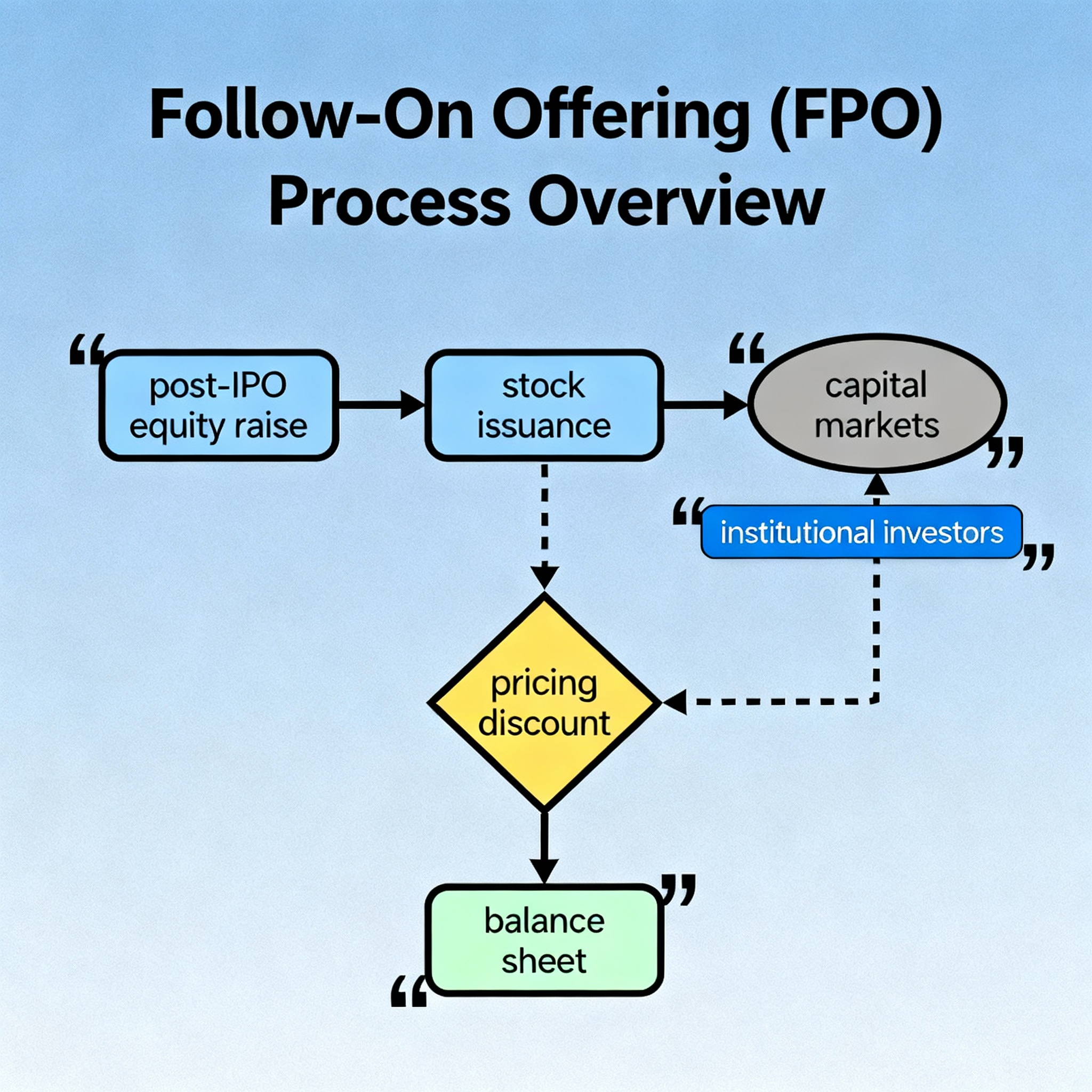Executive Summary
- What it is: A follow-on offering (FPO) issues additional shares after the IPO.
- Why it matters: Funds growth, M&A, or deleveraging while increasing float and liquidity.
- Types: Primary (new shares, dilutive) vs. Secondary (existing holders sell, non-dilutive).
Core Structure
1) Use of Proceeds
- Primary FPOs raise capital for expansion, R&D, capex, acquisitions, or balance sheet repair.
- Secondary offerings provide liquidity for insiders/VCs without raising new company cash.
2) Deal Formats
- Fully marketed: 2–4 day investor education; wider distribution; potential pricing support.
- Accelerated bookbuild (ABB): Overnight/one-day wall-cross; speed reduces market risk.
- Bought deal: Underwriter purchases all shares, assuming market risk for a fee.
3) Pricing Mechanics
- Discount to last close/ VWAP to incentive uptake; typical 2–8% depending on size/volatility.
- Key determinants: Offer size as % of float, recent performance, investor mix, lock-up context.
- Allocation: Tiered between long-only, hedge funds, and existing holders to stabilize post-trade.
4) Dilution and Float
- Primary FPO increases share count; EPS dilution unless proceeds create value above cost of capital.
- Larger public float can tighten spreads, deepen book, and improve index eligibility.
5) Regulatory & Documentation
- Shelf registration (e.g., SEC Form S-3) enables rapid takedowns.
- Prospectus supplements detail use of proceeds, risk factors, and underwriting terms.
6) Execution Timeline
- Pre-soundings and wall-cross → launch → bookbuild → price → allocate → T+1 settlement.
- Stabilization: Greenshoe/over-allotment supports aftermarket performance.
Worked Example
Company XYZ runs an ABB for 15M shares (~7% float) at 4% discount to last close.
- Proceeds: $450M to repay revolver and fund AI capex.
- Impact: EPS -2% near-term; leverage drops from 2.4x to 1.6x; liquidity improves.
Investor Checklist
- Evaluate dilution vs. ROIC on proceeds deployment.
- Scrutinize discount vs. historical norms and deal size.
- Assess lock-ups, insider participation, and underwriter quality.
- Model pro forma ownership, leverage, and EPS.
Glossary
- ABB: Rapid bookbuild to price overnight/next-day.
- Greenshoe: Option to sell 15% extra shares for stabilization.
- Shelf: Registration enabling quick securities issuance.
SEO Keywords
follow-on offering, FPO, secondary offering, accelerated bookbuild, greenshoe, shelf registration, dilution, float, pricing discount, use of proceeds

